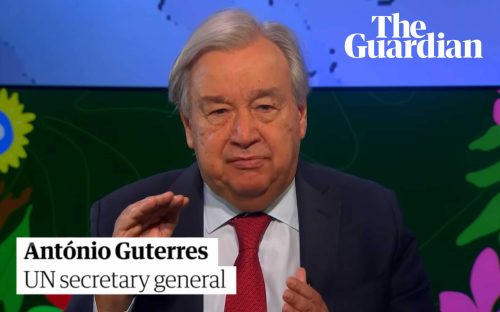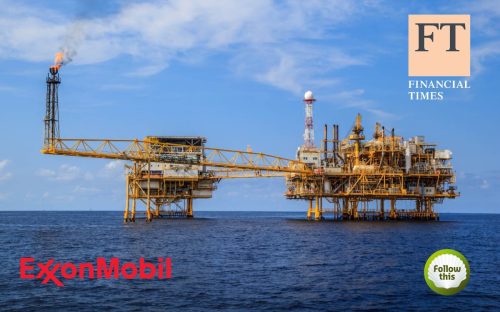PRESS RELEASE
AGM season closes with a third shareholders’ rebellion over non-committal “climate ambitions”, following Shell and Equinor
Total has failed to deter shareholders from seeking concrete action to curb emissions, despite announcing a new climate ambition. At the company’s AGM today, 16.8% of shareholders voted for a climate targets resolution, against the advice from Total’s board.
The results show a rising proportion of principled investors are not persuaded by Total’s announcement of a new ambition to reach “net zero by 2050”. The voting follows the same pattern seen at the AGMs of Shell and Equinor earlier this month, a sharp increase when compared with 2018, when the same resolution secured votes from 5.5% of investors in Shell. Ordinarily, 99% of shareholders vote according to management advice.
“For the third time this month, responsible investors have sent a clear signal to an oil major,’ says Van Baal. “They expect action from management – not just empty words about 2050,” says Mark van Baal, founder of Follow This, which filed the same resolution at Shell and Equinor.
Total in 2050: non-committal and misleading “ambition”
“These investors have understood that Total’s new ‘net zero by 2050’ ambition is not only non-committal, but also misleading,” explains Van Baal. “Total has defined ‘net zero’ in terms of emissions from its own operations (Scope 1 and 2) and including its product emissions (Scope 3) in Europe, but excluding all Scope 3 emissions outside Europe.”
No shift in investments
Follow This asked whether Total’s “Net Zero by 2050” ambition would lead to (1) absolute emissions reductions and (2) a fundamental shift in investments away from fossil fuels to renewables by 2030. Both are essential to achieving the goals of the Paris Climate Agreement.
Patrick Pouyanné, CEO and Chairman of Total, gave revealing answers: “We won’t have a fundamental shift, no, because the energy mix of the whole planet won’t change drastically.” (full transcript below).
“These answers show that an ambition for 2050 is not enough. Shareholders need to hear that emissions will go down and investments in renewables will go up this decade,” responds Van Baal.
Familiar tactics
The results at Total closely track the outcomes at this year’s AGMs of Shell and Equinor. All three companies announced a new ambition prior to the vote, rejected a climate resolution as unnecessary, then suffered a substantial shareholder revolt by a growing minority of investors.
“These kinds of tactics by management have become predictable. Announcing a new climate “ambition” at the last minute, before a climate resolution comes to vote, has become the counter-response of choice for the oil industry. In 2020, for more and more investors, this response looks neither credible nor serious.
Only shareholders can compel management
“If the delaying tactics prove one thing, it’s that the boards of oil companies will not change course on their own initiative. This responsibility lies with owners. Only shareholders can compel management to set targets, and support them to invest accordingly in the energy transition,” says Van Baal.
Climate targets recognised as a fair ask
Follow This filed its first climate resolution at Shell in 2016, when it received 2.7% of the shareholders’ vote. Results from the 2020 AGM season show that In Paris, in 2020, Paris-aligned targets are “considered a fair ask by responsible investors,” says van Baal. In recent years, single-digit percentage votes in favour of climate targets at Shell (6% in 2017), Equinor (12% in 2019) and BP (8% in 2019) proved sufficient to to compel all three companies to announce climate “ambitions” for the first time.
BP
“So far, only BP has publicly acknowledged that shareholder support is an imperative to drive the energy transition. Therefore, BP and Follow This have agreed – in a joint public statement – to work together on drafting a climate resolution for 2021.”
Losing patience
“Investors are losing their patience with oil majors’ delay tactics to respond to the climate crisis,” says Mark van Baal. “For more and more investors, the oil major playbook of keeping the discussion going, doesn’t work anymore.”
Fiduciary duty
Only the biggest industry incumbents have the technical know-how, financial muscle, and market-making opportunities to rapidly scale an energy transition to renewables.
“More and more investors recognise that the oil and gas industry can make or break the goals of Paris Climate Agreement. These investors understand that achieving these goals is part of their fiduciary duty to protect all the assets in the global economy from devastating climate change. That’s why they vote for the targets in our climate resolutions.”
Climate targets will never be “unnecessary”
“We believe that only concrete targets for all emissions will lead oil majors to the necessary shift in investments from fossil fuels to renewables,” says van Baal.
“Despite the claims of Total’s, Shell’s, and Equinor’s directors, shareholder votes for climate targets will never be “unnecessary.”
Follow This Questions at the 2020 AGM:
- Will Total’s “Net Zero by 2050” ambition lead to a (net) absolute emissions reduction by 2030?
- Will Total’s “Net Zero by 2050” ambition lead to a fundamental shift in investments away from fossil fuels to renewables of at least 50% annually by 2030?
Patrick Pouyanné: “Mr. Van Baal, you should read the document that we have just published. In this document we talk about our climate ambition, we said that we wanted to make our ambitions in low carbon emissions from 10 to 20% in the next decade. I think we’ll get to 20% very quickly, but we won’t have a fundamental shift, no, because the energy mix of the whole planet won’t change drastically, Total has clients, we have customers, so over the years of course we will increase our investments as I said, and if we want, and we will, because we’ve announced it, decrease our carbon intensity by 15% by 2030 and this means that we will have to invest more than 15% per year, we’re starting from zero so clearly by 2030 we’ll probably be at 20, 25% maximum. And when talking about transition it’s also about what we’re doing in gas and oil. So my answer is the following, and this exactly the debate that we’re having with different NGO’s, organisations – they’re all saying we’re not fast enough, but our belief is that yes, we need to have clear willpower, but we also have customers, and we need to offer them our service. This is the balance we are trying to strike. Let me be clear, our commitment, my commitment, is that the ambitions that we’ve put on the table, we will fulfill them. And the demonstration that I would like to make to Mr Van Baal, and he’s probably from the Netherlands, I believe, and what I want to say is that since 2015 we’ve reduced our carbon intensity by 6%. We’re the only stakeholder to have done that, I have a lot of colleagues [competitors] that said that they would do it, but I think the next in line has managed to reduce it by 1-2%, so we are trying to implement this transition at the pace that is relevant for us.”










